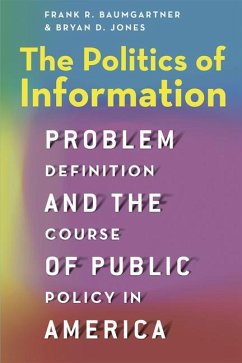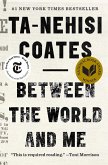How does the government decide what's a problem and what isn't? The authors focuses on the problem-detection process itself, showing how the growth or contraction of government is closely related to how it searches for information and how, as an organization, it analyzes its findings.
Information is central to government. Control the flow of information, and you can control the growth of government. So argue Frank Baumgartner and Bryan Jones in their latest book on the American policymakng process. They show how the growth and spread of governmentand its contractionsare closely related to how it searches for information, its definition of problems, and its organizational capacity to analyze that information. Just like individuals, government institutions, especially Congress, are subject to the paradox of search. If we don t seek, we won t find problems that ought to be addressed. But, if we do look for problems, we almost certainly will find them. And with each discovery of the nature of a social problem comes the possibility of creating a government program to help alleviate it. To make their case, the authors rely on massive empirical datasets that trace the course of US public policy since World War II. Connecting the nature of the search process to policy outcomes, they tellingly show how government policy is intimately tied to the search process in a manner consistent with the paradox. Better search processes, defined as those that incorporate more diverse viewpoints, lead to more intensive government policymaking. Similarly, limiting the search process is associated with declines in policymaking activity. At the same time, they find little evidence that that the factors usually thought responsible for government expansionpartisan control of government, changes in presidential leadership, or shifts in public opinionare systematically related to the trends they observe."
Hinweis: Dieser Artikel kann nur an eine deutsche Lieferadresse ausgeliefert werden.
Information is central to government. Control the flow of information, and you can control the growth of government. So argue Frank Baumgartner and Bryan Jones in their latest book on the American policymakng process. They show how the growth and spread of governmentand its contractionsare closely related to how it searches for information, its definition of problems, and its organizational capacity to analyze that information. Just like individuals, government institutions, especially Congress, are subject to the paradox of search. If we don t seek, we won t find problems that ought to be addressed. But, if we do look for problems, we almost certainly will find them. And with each discovery of the nature of a social problem comes the possibility of creating a government program to help alleviate it. To make their case, the authors rely on massive empirical datasets that trace the course of US public policy since World War II. Connecting the nature of the search process to policy outcomes, they tellingly show how government policy is intimately tied to the search process in a manner consistent with the paradox. Better search processes, defined as those that incorporate more diverse viewpoints, lead to more intensive government policymaking. Similarly, limiting the search process is associated with declines in policymaking activity. At the same time, they find little evidence that that the factors usually thought responsible for government expansionpartisan control of government, changes in presidential leadership, or shifts in public opinionare systematically related to the trends they observe."
Hinweis: Dieser Artikel kann nur an eine deutsche Lieferadresse ausgeliefert werden.








